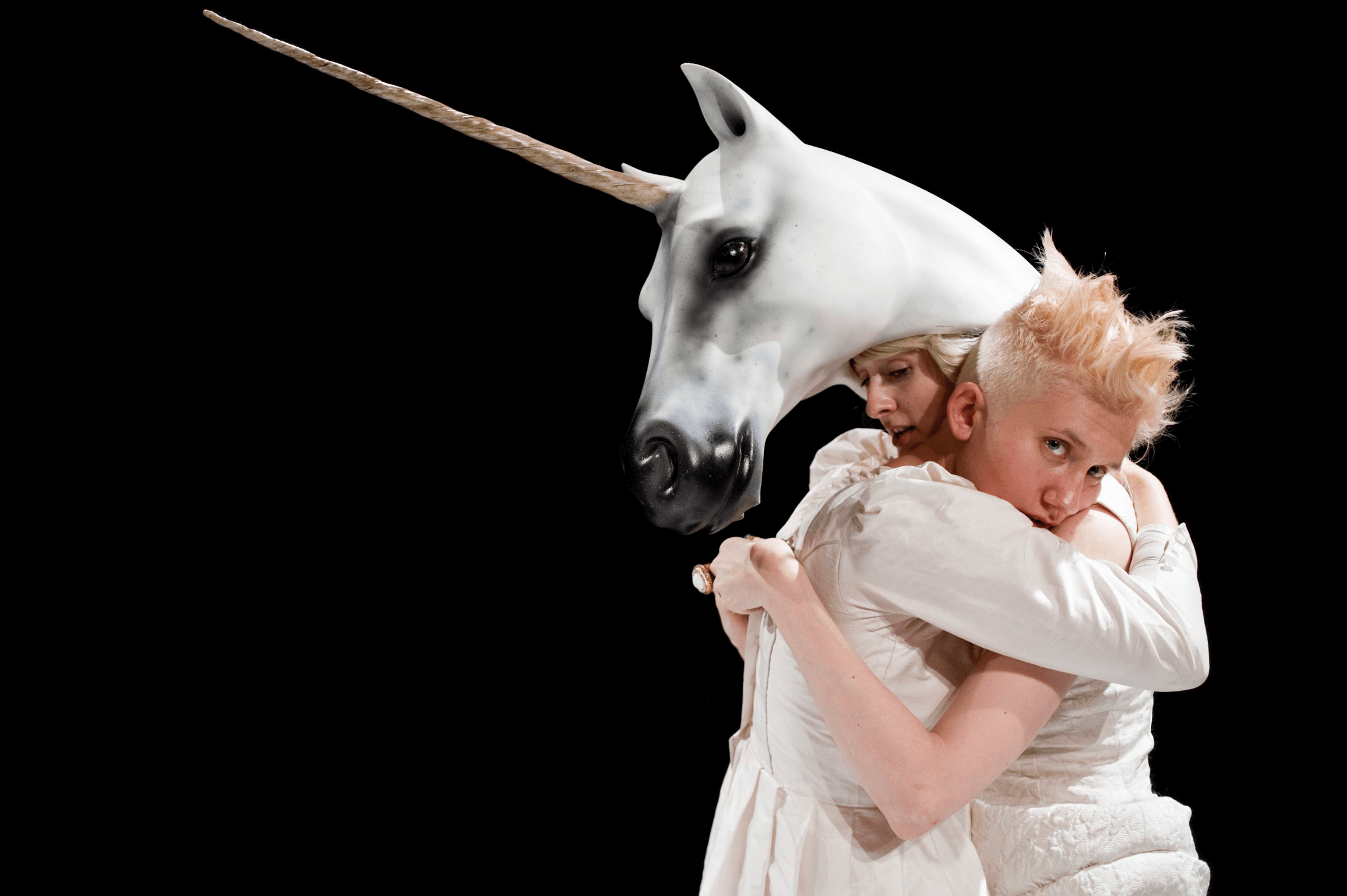Queer
A Brazilian transport company. I saw its logo when I first typed the title ‘Transgiovanni’ into the image search engine. At that time, I thought that the TERAZ POLIŻ artists must have been on some kind of a foreign trip – private or professional – and had subversively seized the name of a company associated with the tough, male environment of truck drivers, in order to include it in the title of a queer performance. It seemed wonderfully mischievous to me. It turned out, however, that it was not Transgiovanni Transportes from the southern Brazilian town of Blumenau, but Giovanni Boccaccio who inspired the creators of this project. However, the transport company left a kind of false memory in the researcher’s mind – like an image of a place that you have seen in person, but still imagine it as you had thought it looked like before you saw it.

Queering can be a cognitive approach, a methodology or a creative practice. In the case of “Transgiovanni“, there is something of a symbolic act of seizing a part of the Renaissance literary canon, Boccaccio’s ”Decameron”, and turning it into a bullet fired at the order that the work represents.
The stage adaptation of novels addressed to, as the author stressed in the prologue, ‘weak women’ is a form of détournement, or politically founded gesture of transposition: classic novels based on a binary, essentialist view of the world are given a feminist and queer interpretation, undermining the belief in the stable identity of both the subject and the work belonging to the canon. Queer – as Joanna Krakowska wrote in “Queer Revolution” – ‘is not so much a sexual identity but a mental one’, and ‘an alternative method of addressing important contemporary issues’. Queering is also about addressing the condition of the minority – not necessarily the one that is less numerous, but the one that is less visible, less represented, not included in the discourse. In this context, a feminist perspective – revealed in performative practice, but also in writing – is drawing attention to things that are politically ‘queer’.

